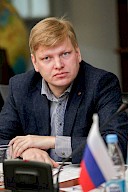Artem Dankov: Transformation of the problem to use water resources from transboundary rivers in Central Asia in 2017-2023

After the collapse of the USSR, the coordinated management of water resources has become one of the main problems for the countries of Central Asia. Water is of paramount importance in the region, determining the future direction of its development. Much of the region consists of arid desert and semi-desert areas what further complicates the situation. Over the past decades, the countries of Central Asia have tried to take steps for constructive resolving water issues, but so far no concrete results have been achieved. However, water supply issues and the quality of fresh water currently play such an important role in the life of these countries that neglect of them can lead to destabilization of the socio-economic and political situation in the region.
The lack of water resources in transboundary rivers, especially for irrigation of agricultural land, and the growing threat of melting glaciers in the Tien Shan and Pamirs significantly aggravated the contradictions between the countries located both in the lower and upper reaches of these rivers. This gradually led to increasing tension in the relations between states in Central Asia. For example, the well-known tragedy of the Aral Sea is the result of complex factors and long-term processes, in which both natural and anthropogenic factors were involved. In the 20-30s of the 20th century, after starting the construction of irrigation systems, significant changes were made to the ecosystem of the region. The construction of large canals to irrigate cotton and rice crops in Central Asia led to large losses of water and a disaster in the Aral Sea. This caused conflicts and tension in the region, which ultimately led to the disappearance of a major water resource.
In recent years, some changes have taken place that, on the one hand, provide a real chance to coordinate the positions of the countries in the region on the issue of water resources and to create the real mechanisms for their joint use, and on the other hand, they can completely change the relations system that has developed around the use of transboundary river resources...
Read the paper




